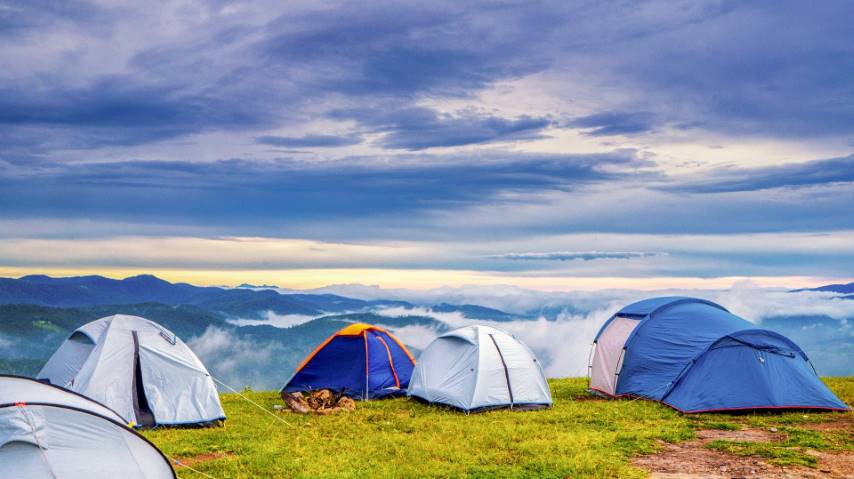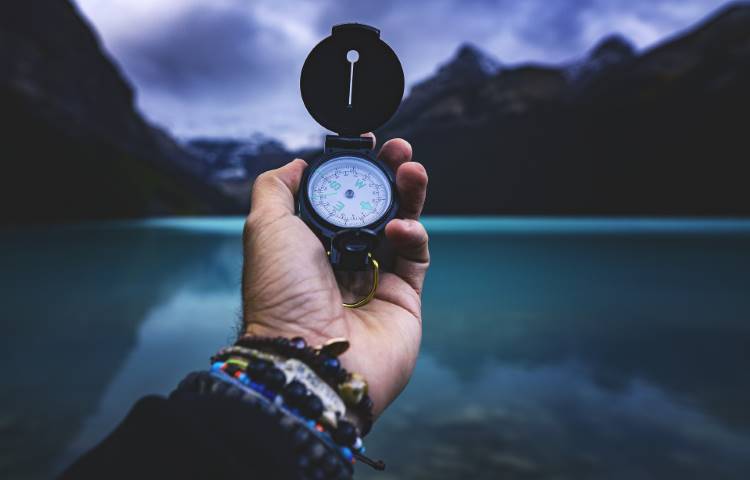Ah, the great outdoors! There is no greater source of joy, relaxation, or adrenaline-pumping excitement. No matter what you’re looking to experience- a camping trip can be just what you need to clear your head, unwind, and have fun! While people tend to have varying thresholds for all things rugged and real, camping can lend itself to even the fussiest of city dwellers. The main component that will take your outdoor experience from stressful to blissful? Why preparedness, of course! Making a list and checking it twice is not just for ol’ Saint Nick- it’s extremely important to familiarize yourself with the essentials of camping, and make a packing list that will help you on your journey. From how heavy certain items will be to carry, to what season you’re trekking out in, there are tons of factors to consider.

If you’ve never been camping, or even if you’re a seasoned pro, here is a list of the essential items you should definitely take with you to ensure you have an amazing, worry-free trip.
1. Fuel Up
Nothing conjures up an image of camping quite like camp food. When people think camping, they think of roasted marshmallows, fire-cooked wiener dogs, and drinks under the stars. However, a lot of work and careful consideration goes into an itemized list of food and drink. When you’re out in the forest or on a mountain, food weight and shelf life are paramount. Unless you’re rolling up to a campsite in a vehicle, you may not want to be lugging around a cooler, and ice will eventually melt in most conditions. For this reason, it’s extremely important to pack foods that travel well. Skip loading up on fresh produce or recipes that need a ton of prep, and opt for packages that boast words like dehydrated, dried, or vacuum packed. This will save on space and save your back in the process.
2. Burn Baby, Burn
If you look back to the earliest existence of man, they figured out one thing that was just as important to survival then as it is today- fire! Away from the comforts of home, being able to build and sustain a roaring fire is a top priority. Therefore, basic fire starters should be topping your packing list. Safely made fires can act as an oven, confectionery, main light source, and a warning to scare off wildlife. These are no-brainer packing list items that can’t be left at home. Loading lighters, waterproof matches, and lighter fluid in your travel bags will warm your campsite, illuminate your nights, and spark up some fun!
3. Toiletry Treats
Some things in life being outdoors should have no impact on, and one of those things is personal hygiene. Camping is muddy, sweaty, business, and if you’re heading out for more than one day you’ll need to bring products to clean off sweat and grime. In the wilderness, your eco-footprint is something to be cognizant of, so you should always reach for natural alternatives. That being said, toothbrush, toothpaste, soap, and shampoo are definitely not things you can go without. Do your fellow tent-mates a favor and don’t ditch the deodorant!
4. Take a Seat
Believe it or not, a triathlon and a camping trip have a lot in common. Well… maybe not, but they do share an obvious similarity: lots and lots of movement! Walking, running, swimming, and perhaps even biking are all activities people try to fit in when embarking on their camping adventure. Having a nice place to rest sore muscles makes an incredible difference- which is why bringing proper seating is a camping must. When searching for the perfect place to chill out and lounge, ease of packing and versatility are the top two considerations. That’s why multi-use gear like camping hammocks can be lifesavers. Not only do they save on space, but they can also double as sleeping areas and provide a killer view of the night sky. Plus, they can always double as backyard or park loungers as well.
5. See the Light
Being off the beaten path has its advantages, but it also means a lack of electricity and therefore a lack of effective light sources. When preparing, a battery-operated light source (and batteries, of course!) is crucial to being able to see what’s happening at night. Consider hands-free gear, such as headlamps or lanterns, so you can use the light to your best advantage. As mentioned, fires are awesome- but unless it’s a super bright and clear night, having an alternate source of light will make it possible to build a successful fire in the dark.
6. Navigation

Though cell phones seem to do everything these days, there’s not much you can do with them when they’re out of service range. Often when camping you find yourself in remote areas, which makes relying on a phone for navigation dicey. Doing it the old fashioned way and grabbing a map and a compass or a battery-powered GPS can save unnecessary aggravation and ensure you don’t get lost.
7. Layers, Layers, Layers
Something that you simply can’t control when packing for camping is weather fluctuation. Sweltering hot days and much colder nights are common in lots of camping areas. Combined with a surplus of physical activity, your body can go from shivering to sweating and back again in no time at all. What you can do to combat this is packing lots of layers! Smart campers know that sweat-wicking and well-insulated materials will regulate their temperature, and having the range of garments to compete with the changing elements will make things much more enjoyable.
Camping is a beloved pastime and can be a truly memorable experience that you will treasure forever. Packing for a three-day trip may not seem like something that requires a lot of effort, but proper preparation can make or break a getaway. Planning ahead and making an informed packing list will lessen anxiety levels and increase trip enjoyment. Hopefully, these 7 tips will take some of the guesswork out of organizing your next camping trip. Don’t get caught unprepared, just get caught up in the moment!





